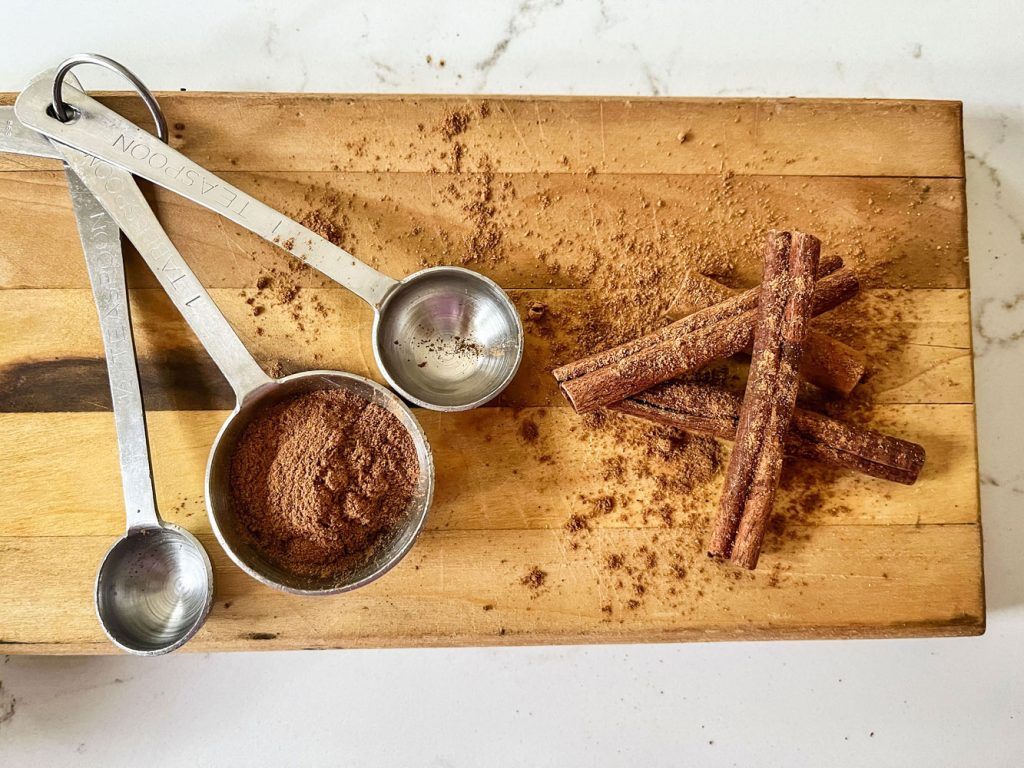Super cinnamon

The spice cinnamon comes from the bark of trees and has many uses and health benefits. Used in both sweet and savory dishes, cinnamon is a favorite spice to use in the fall.
A few of the joys of fall include sipping a pumpkin-spiced latte sprinkled with cinnamon, holding a mug of hot apple cider with a curl of cinnamon bark, and taking a bite of a freshly baked apple pie, featuring cinnamon. Since ancient times, the fragrant spice of cinnamon, with its sweet and slightly spicy flavor, has been incorporated into many recipes. In addition, cinnamon is believed to have many health benefits and even medicinal properties.
Cinnamon used to be rare and valuable and was regarded as a gift fit for kings. These days, cinnamon is widely available and affordable. Obtained from the bark of trees, cinnamon sticks are dried strips of bark that are curled into rolls. These sticks can be ground to form cinnamon powder.
The most common varieties of cinnamon include Cassia and Ceylon. Cassia is more common and is most often found at the grocery store, but Ceylon is often referred to as “true” cinnamon and considered to be of higher quality with a more delicate, subtle flavor. Cassia cinnamon contains a compound called coumarin, which can be harmful in large quantities. Ceylon cinnamon is a safer option if cinnamon is consumed regularly.
While cinnamon is a key ingredient in many sweet baked goods such as cinnamon rolls, pies and cookies, this warm and comforting spice is also used in savory dishes such as soups and chilies and in spice blends such as garam masala.
The spice has been credited with antibacterial, antimicrobial, antioxidant and anti-inflammatory properties. According to everydayhealth.com, “People use cinnamon to treat bug bites, ease the discomfort of urinary tract infections and soothe rheumatoid arthritis symptoms, as well as a broad spectrum of other maladies.”
Preliminary research is exploring the possibility of cinnamon’s help with managing blood sugar, improving high cholesterol, fighting dementia and even treating multiple sclerosis. Scientists believe the compound cinnamaldehyde in cinnamon is responsible for most of cinnamon’s powerful effects on health, according to healthline.com.
Cinnamon is often regarded as an effective and chemical-free ant and moth control option. Sprinkle cinnamon to repel ants and prevent moths in closets and drawers with a sachet filled with a cinnamon stick, black peppercorns and whole cloves.
Other creative uses include using ground cinnamon to erase scuffs and scratches on wooden furniture and using cinnamon as an air freshener in the car. Use a cinnamon stick to hold a place card for each person at the table during the holidays.
Article and photo by Lisa Nicklanovich